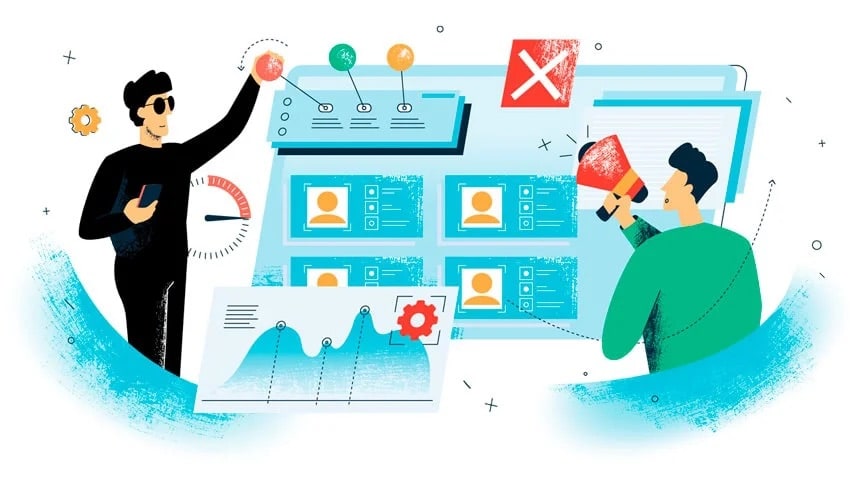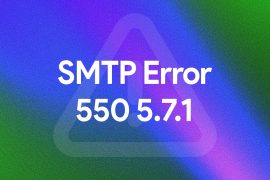Today, cyberattacks are becoming more and more frequent. Not a week goes by without hearing in the news about a website or an application that has fallen victim to a data breach. These attacks are serious and double-edged, exposing not only the personal information of thousands of users, but also having dramatic consequences for the companies that are targeted.
Computer hacking: a threat to businesses and individuals
In a world where IT plays a predominant role, data security has become a crucial issue. Computer hacking involves obtaining unauthorized access to confidential and sensitive information belonging to a company or individual. This may include medical data, financial data, but also identity documents or login credentials. It is important to emphasize that data breaches are part of the broader phenomenon of data security infringements, which also include attacks on data integrity and availability.
What is a data leak and where do they come from?
Data simply corresponds to information. This can be related to a company, its staff, its clients, its users, etc. Accumulating this data is essential for the smooth operation of an organization, regardless of its size. Data is a real gold mine and, as such, is extremely coveted, which explains the exponential number of attacks aimed at stealing it. These are referred to as data breaches or data leaks in English. Once the data is stolen, it is considered compromised.

At the origin of these losses or thefts are IT experts, hackers, and pirates who, once they detect a flaw in the protection of personal data systems, will rush in to steal the information present. They can then choose to disseminate it on the internet, sell it, or use it for various actions such as phishing. Given that this involves personal information not meant to be known by everyone, the gravity of this type of attack is clear.
In general, when a data leak occurs, the site or company that is the victim must inform its clients by email, explaining the facts and giving instructions to avoid suffering damage following the attack, such as changing login credentials, monitoring banking sessions, etc. If the email is received and read, perfect. However, if it lands in spam or junk as is sometimes the case, the user will not be able to protect themselves.
The motivations of hackers: between money and challenge
The question then arises: why do these cybercriminals seek access to the sensitive data of others? There are several reasons that motivate computer hacking.
- Financial gain: some data, such as banking information or identity documents, can be sold for a high price on the black market.
- The desire to harm: some hackers aim to cause damage, whether financial, material, or to the reputation of targeted companies.
- Personal challenge: some hackers see breaking into a computer system as a technical challenge that allows them to test their skills.
In light of these various motivations, it is essential to implement adequate measures to ensure security.
How to know if your email has been compromised?
The Captain Verify mail tester allows you to quickly and easily perform the necessary checks. To do so, enter your email address in the provided field.
Even if nothing is indicated, it remains imperative to be cautious. Here are some tips to protect yourself: Avoid always using the same login credentials (email and password) on different websites. Change your passwords regularly.
If your email is identified as compromised in a data breach, it’s time to worry. You must immediately change your password and enable two-factor authentication!
Captain Verify x Have I Been Pwned
Using Have I Been Pwned with Captain Verify offers several advantages. Not only does it help identify compromised profiles, but it also encourages better digital hygiene. Awareness of security issues prompts users to take extra precautions to protect their data.
The Mail tester also facilitates understanding the extent of compromised information. By knowing if your email appears in a security breach, you can take appropriate actions to secure your access.
Check if your email has been compromised in a data breach
Improving personal security
Being aware of the vulnerability of your data drives the adoption of more rigorous protection strategies. For example, enabling two-factor authentication (2FA) on your important credentials can greatly increase their security.
It is also wise to use password managers to create and store strong, unique passwords for each service. These tools minimize the risks associated with using similar or easily guessable passwords.
What risks do you face and how can you better protect yourself?
Using the same password for most sites is a very common mistake. It is best to use a password manager.
Regarding fraudulent emails, always be wary of messages that may appear suspicious, even if they seem to come from a reliable source. Among the basic guidelines; never click directly on a link or attachment in an email. Also, consider checking for potential grammatical or spelling errors in the text, or double-checking the sender’s email address. The slightest letter difference may sometimes be a sign of a phishing attempt.
Finally, let’s remember that to protect your personal information online, the best way is to limit the type and amount of information shared as much as possible, especially on social media platforms.
Maintaining constant vigilance
It is important to keep in mind that security should not be seen as a one-time goal, but as a continuous process. Faced with ever more inventive cybercriminals, it is crucial to remain vigilant and regularly adapt protection strategies. To conclude, the issue of security holds major importance in our digital society. Businesses and individuals must be extra cautious to protect their confidential information against cyberattacks, whose motivations can be varied. Therefore, implementing an effective protection strategy and maintaining constant vigilance.
How to react after a hack?
If you discover that your email has been compromised via the Mail tester (HaveIBeenPwned), it is vital to act quickly to limit the damage. Here are some steps to follow:
- Change your passwords: Immediately update the passwords of the affected accounts. Use complex combinations and avoid reusing old passwords.
- Enable 2FA: Two-factor authentication adds an extra layer of security, making unauthorized access more difficult even if someone knows your password.
- Monitor your accounts: Be attentive to suspicious activities on your bank accounts and other critical services. Report any unusual activity to your bank or relevant provider.
- Use monitoring services: Consider credit and identity monitoring services to receive alerts in case of suspected identity theft.
- Inform your contacts: If you think your contacts could be affected, notify them so they can also take precautionary measures.







